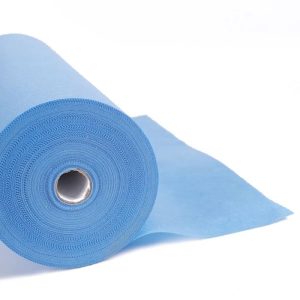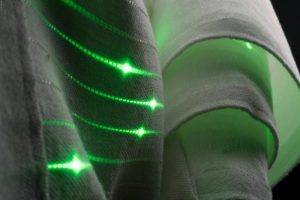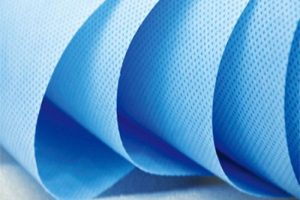
Embark on a journey through the world of textile and nonwoven fabric suppliers, where quality meets innovation and reliability reigns supreme. Discover the key aspects that set these suppliers apart in the industry.
From top manufacturers to sustainability practices, uncover the essential information you need to know about sourcing materials in this dynamic sector.
TEXTILES AND NONWOVENS
Textiles and nonwovens are essential materials used in a wide range of industries. While both serve similar purposes, there are distinct differences between the two.
Textiles
Textiles are materials made from natural or synthetic fibers that are woven, knitted, or bonded together. Common types of textiles include cotton, wool, silk, and polyester. These fabrics are widely used in clothing, home furnishings, and industrial applications.
Nonwovens
Nonwovens, on the other hand, are engineered fabrics made by bonding or felting fibers together. Unlike textiles, nonwovens do not require weaving or knitting. They are often used in disposable products like wipes, medical garments, and filters.
Unique Properties
Textiles offer breathability, durability, and versatility due to their woven or knitted structure. On the other hand, nonwovens provide strength, fluid resistance, and cost-effectiveness in applications where disposability is key. Both materials offer a wide range of properties that make them suitable for various uses in different industries.
Textile and Nonwoven Fabric Suppliers
In the textile industry, sourcing materials from reliable suppliers is crucial for ensuring the quality and consistency of the final products. Choosing the right textile and nonwoven fabric suppliers can make a significant impact on the success of a business. Let’s explore the top manufacturers of textile and nonwoven fabrics globally, along with the importance of selecting trustworthy suppliers and the process of sourcing materials from them.
Top Manufacturers of Textile and Nonwoven Fabrics Globally
- 1. China National Textile and Apparel Council (CNTAC): CNTAC is one of the largest textile industry associations in China, representing numerous textile manufacturers in the country.
- 2. DuPont: Known for its innovative nonwoven fabric solutions, DuPont is a leading global supplier of advanced materials for various industries.
- 3. Kimberly-Clark: A well-known producer of nonwoven fabrics, Kimberly-Clark offers a wide range of products for hygiene, healthcare, and industrial applications.
- 4. Toray Industries: Toray Industries is a Japanese multinational corporation that produces a diverse range of textile and nonwoven fabric products.
- 5. Ahlstrom-Munksjö: This Finnish company specializes in providing sustainable fiber-based materials, including nonwoven fabrics, for various applications.
Importance of Choosing Reliable Suppliers in the Textile Industry
Reliable suppliers play a critical role in maintaining the quality, consistency, and timely delivery of materials in the textile industry. By selecting trustworthy suppliers, businesses can mitigate risks related to product defects, delays, and disruptions in the supply chain. Establishing long-term relationships with reliable suppliers can also lead to cost savings, improved product innovation, and better overall performance.
Process of Sourcing Materials from Textile and Nonwoven Fabric Suppliers
When sourcing materials from textile and nonwoven fabric suppliers, businesses typically follow a structured process that involves identifying potential suppliers, evaluating their capabilities and quality standards, negotiating terms and pricing, and establishing formal agreements. It is essential to conduct thorough due diligence on suppliers, including site visits, quality audits, and compliance checks, to ensure they meet the required specifications and standards.
Effective communication and collaboration with suppliers are key to building strong partnerships and achieving mutual success in the textile industry.
Quality Standards and Certifications

When it comes to textile and nonwoven fabric suppliers, adhering to quality standards and certifications is crucial to ensure the products meet the required specifications and regulations in the industry.
Quality Standards
- ISO 9001: This standard focuses on quality management systems and ensures consistent quality in products and services.
- ISO 14001: Environmental management systems standard that emphasizes sustainability and reduced environmental impact in production processes.
- AATCC: American Association of Textile Chemists and Colorists standards for testing and evaluating textile materials.
Certifications Significance
- OEKO-TEX: This certification ensures that textiles are free from harmful substances and safe for human use, promoting environmentally friendly production processes.
- GOTS (Global Organic Textile Standard): Focuses on organic fibers, social criteria, and environmentally friendly manufacturing processes, providing assurance of organic integrity throughout the supply chain.
Impact on Supplier Selection
Adherence to quality standards and certifications like OEKO-TEX and GOTS not only ensures product quality and safety but also reflects the supplier’s commitment to sustainability and ethical practices. Customers are increasingly looking for suppliers who prioritize quality, sustainability, and safety, making it essential for suppliers to meet these standards to remain competitive in the market.
Sustainability Practices

In today’s increasingly eco-conscious world, sustainability practices have become a crucial aspect of the textile and nonwoven fabric industry. Leading suppliers are taking proactive steps to ensure their operations are environmentally friendly and socially responsible.
Eco-Friendly Initiatives
- Implementing recycled materials: Many suppliers are incorporating recycled fibers and materials into their production processes, reducing the need for virgin resources.
- Energy-efficient manufacturing: Companies are investing in energy-efficient technologies and processes to minimize their carbon footprint.
- Water conservation: Water is a precious resource, and suppliers are adopting water-saving techniques to reduce consumption and minimize wastewater generation.
- Sustainable sourcing: Suppliers are sourcing raw materials from ethical and sustainable sources, promoting fair trade practices and supporting local communities.
Importance of Sustainability
Sustainability is not just a trend; it is a necessity for the textile and nonwoven sector to thrive in the long run. By adopting sustainable practices, suppliers can reduce their environmental impact, enhance their brand reputation, and meet the growing demand for eco-friendly products.
Final Wrap-Up
As we wrap up our exploration of textile and nonwoven fabric suppliers, remember that choosing the right supplier is crucial for success in the textile industry. Stay informed, stay discerning, and watch your projects thrive with the best materials at hand.
FAQ Guide
What sets textile and nonwoven fabrics apart?
Textiles are woven, while nonwovens are bonded together. Nonwovens tend to be more cost-effective and versatile.
Why is choosing reliable suppliers important in the textile industry?
Reliable suppliers ensure consistent quality, timely deliveries, and strong relationships that benefit both parties.
What are some common quality standards for textile suppliers?
OEKO-TEX and GOTS are two significant certifications that ensure environmentally friendly and socially responsible production.
How do sustainability practices impact textile and nonwoven fabric suppliers?
Sustainability practices help reduce environmental impact, improve brand reputation, and meet consumer demands for eco-conscious products.





